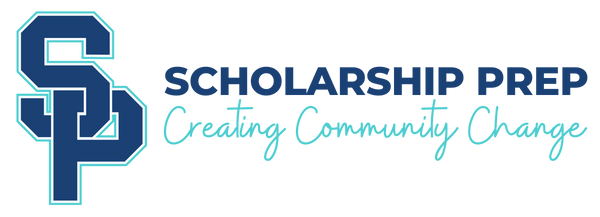As educators, we constantly seek ways to improve our practice and better serve our students. Scholarship Prep’s Chief Academic Officer, Taylor Ellis, presented four session topics at this week’s California Assessment Conference focused on using data to drive decision-making, goal setting, progress monitoring, and instruction. Together with Scholarship Prep’s Gilanie Thomas (Coordinator of Data and Accountability), Melissa Meyer (Director of Curriculum and Instruction), and Llesenia Villalobos (Principal on Assignment), these sessions highlighted the importance of involving students in this process, empowering teachers to use data for effective coaching, and creating a positive school data culture.
In Making Student Data Students’ Data: Engaging and Empowering Students through Data Chats, the academic team discussed the benefits of allowing students to work with their own data. By engaging students in data chats, teachers can help them become more interested in tracking their learning and growth. Doing so empowers students and allows teachers to make more informed decisions about supporting their students.
Backward Plan Like a Boss: Using ELPAC Resources to Drive Integrated and Designated ELD focused on effectively using ELPAC resources for integrated and designated ELD instruction. By backward planning with these resources, teachers can better meet the needs of their English Learners and help prepare them for the summative ELPAC assessment.
Day two began with Less Gotcha, More I Got You: Using Student Data to Drive Teacher Coaching. “We are really excited to share our experiences and resources around using data to drive teacher coaching,” Taylor explains. “Here, we discussed how to shift the paradigm in teacher coaching to focus on student data to inform pedagogy in order to foster stronger collaboration, depersonalize feedback, increase teacher buy-in and reflection, and ultimately increase teacher capacity.”
Our team’s last session, Creating a Data Culture with Your Staff, addressed the challenge of creating a positive school data culture.
“In this session, we discuss the common barriers that stand in the way of effectively using data at schools, including lack of trust between teachers and administrators, lack of vision for why and how to use data, an over-focus on absolute achievement as opposed to growth, and a lack of familiarity in how to analyze and use data effectively.” – Taylor Ellis, Chief Academic Officer
Practical how-tos were shared to address these barriers and shift culture, including:
- Building relational trust– Be intentional about building trust to build psychological safety
- Setting a clear vision– Set a purpose, clear expectations, and structures of accountability
- Being growth focused-Celebrate growth, be solutions-oriented, look at individual student data
- Develop a clear process– Utilize protocols for data that can be practiced regularly
Overall, these sessions highlighted the importance of using data to inform and improve instruction while empowering students and teachers to take ownership of their learning and growth. By embracing a data-driven approach, educators can better support their students and create positive outcomes for all. Taylor shares,
“It is always wonderful to collaborate with other educators to share best practices from schools across the state. Attending and presenting at conferences like this one helps us to not only share our experiences with others but allows us to gain insights about practices that are working elsewhere to bring back to Scholarship Prep.”

